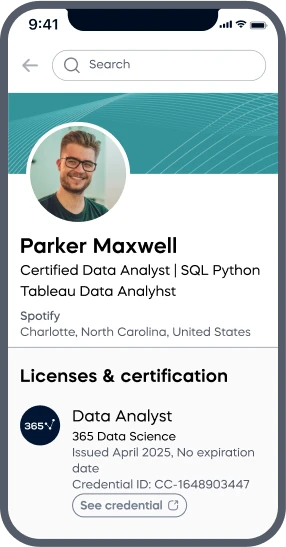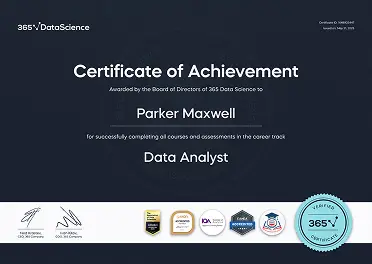Rabab A.
See all reviews
Gain first-hand data analyst experience: Use SQL, Python, and Tableau to tackle real-world business challenges






Skill level:
Duration:
CPE credits:
Accredited

Bringing real-world expertise from leading global companies
Bachelor's degree, Natural Sciences, Physics
Description
Curriculum
Free lessons

1.1 What Does the Course Cover?
4 min

1.2 Motivation - Our Story
5 min

2.1 Introduction to the Project
3 min

2.2 Term Definitions - Visitors, UTMs, Channel of Acquisition
9 min

2.3 Term Definitions - User Types and Funnels
5 min

2.4 Key Questions and Metrics
5 min
96%
of our students recommend
#1 most reviewed
9 in 10
of our graduates landed a new AI & data job
ACCREDITED certificates
Craft a resume and LinkedIn profile you’re proud of—featuring certificates recognized by leading global
institutions.
Earn CPE-accredited credentials that showcase your dedication, growth, and essential skills—the qualities
employers value most.





Certificates are included with the Self-study learning plan.


How it WORKS